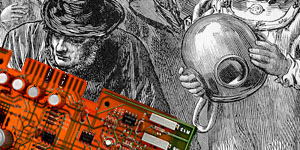


Identifying the Pivot
As soon as one life-form's behavior grows more sophisticated and less instinctive, its competitors' must too. Change or die---those are the usual options. Every living thing works desperately to adapt to changes in its environment and in every other living thing.That lesson is nowhere more obvious than in the special care our body gives our brain. Our brain is less than a fiftieth of our body mass, yet it uses a fifth of our food and a fifth of our blood. Roughly half our genes are needed to build it and another third to maintain it. The brain is the only organ it would be pointless to transplant and the only one that is totally encased in bone (although the womb comes close). It's also the only organ with a special cleaning system and a dedicated blood supply. A hard blow to the head knocks us out; a blow elsewhere usually just causes pain. We faint---and so become helpless---before letting oxygen starvation harm our brain. We spend a third of our lives in sleep, defenseless. Why?
Our brain is where we make information tangible. Anything we can touch, we can manipulate somehow, perhaps to our advantage. By sticking nerve cells between our senses and our responses a thousand million years ago, we gave ourselves the ability to change our responses to environmental change. And, because nerve cells use only a little energy, it's fast and cheap to adjust. In effect, our brains amplify tiny energy changes into big behavioral changes---and adapting to change is what life is all about. All life on earth constitutes a gigantic adaptive machine, adapting itself both to the vagaries of the universe and to itself. A snake eating its own tail, life eats itself to produce itself.
Over the eons, our ever-larger brain gave us an ever-bigger bag of tricks: more and yet more-varied responses for finer and yet finer distinctions. Every increase led to more sophisticated behavior. Each new behavior is like a new organ; although intangible, it is as real as a kidney. Adding a new behavior is cheaper and faster than creating a new organ, just as reprogramming a computer is cheaper and faster than building a new machine. That's why learning new things, new ways of being and doing, is so important.
So, having a brain is supremely important because tinkering with it can be far faster and easier than tinkering with other organs. And, because tiny changes in it can result in major changes in behavior, any brain change is far more important than any other physical change.
The competition to produce better, cheaper, and more accurate high-speed prediction and control still exists today. It's so important that eventually we, the most complex brains on the planet, have produced external brains to help us handle the insane growth rate needed. We call these external brains computers. Just as the presence of the brain radically changed the role of its creators, the genes, so too will the presence of computers radically change the role of their creators, us. Change the brain and you change the world.